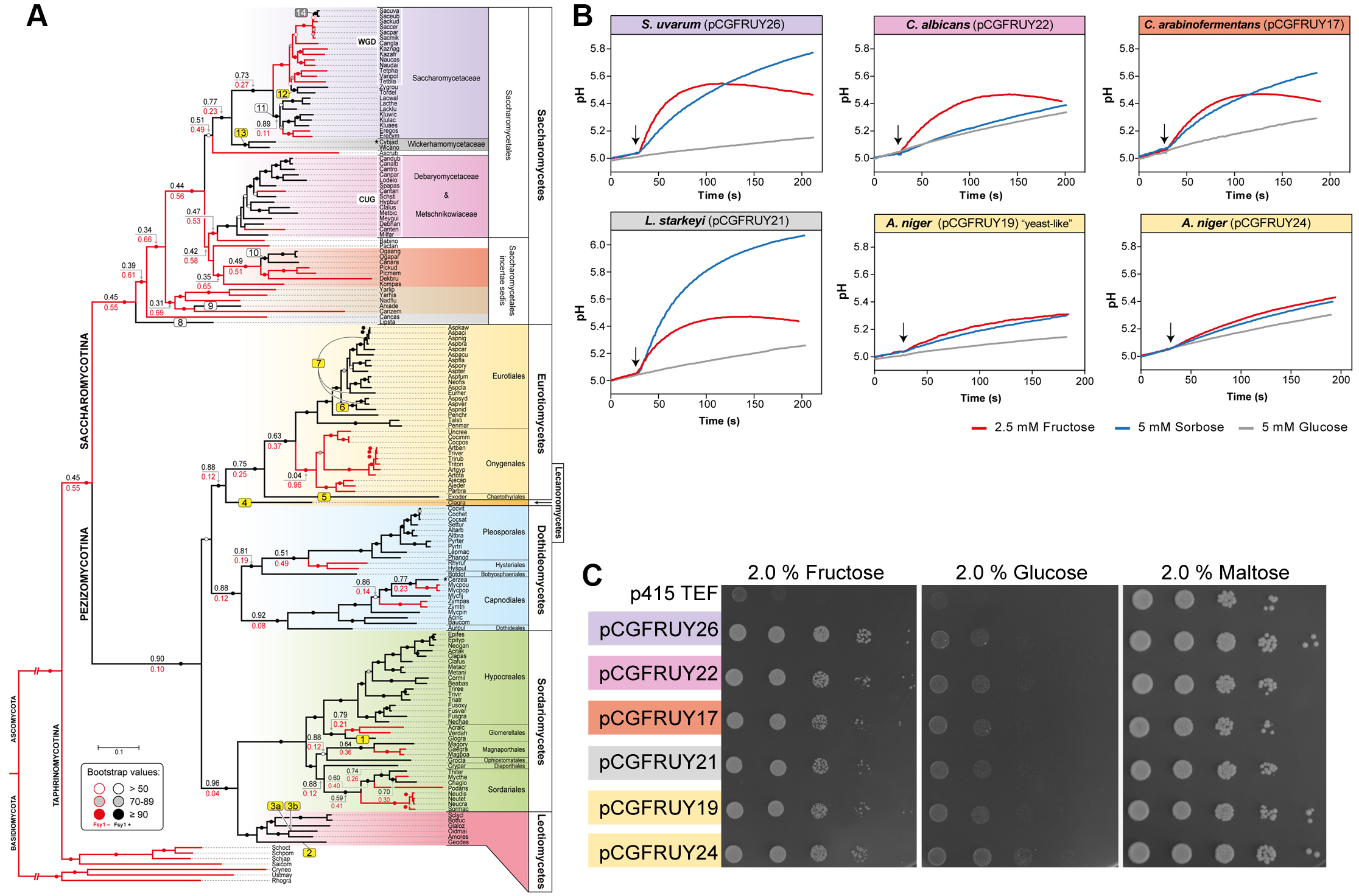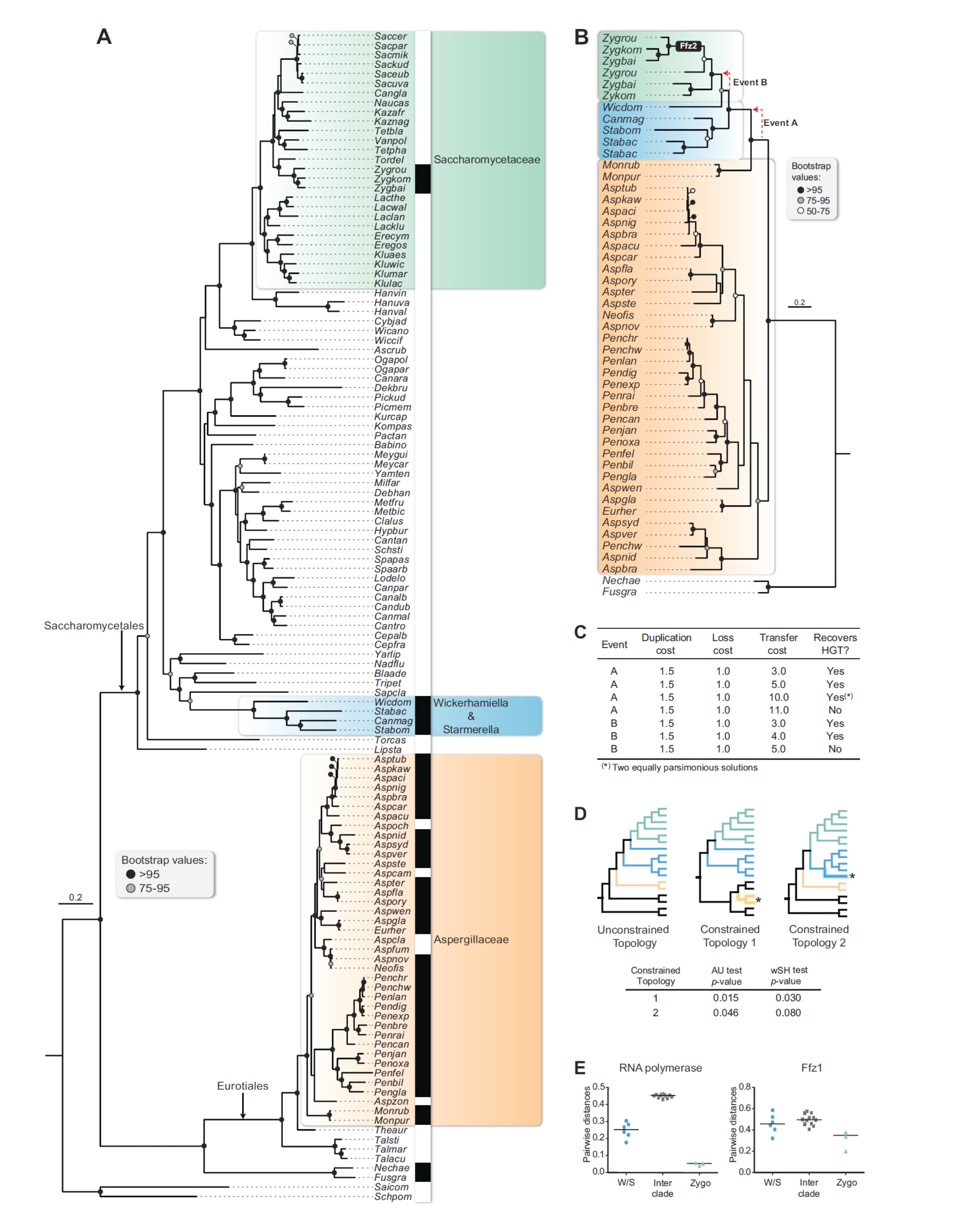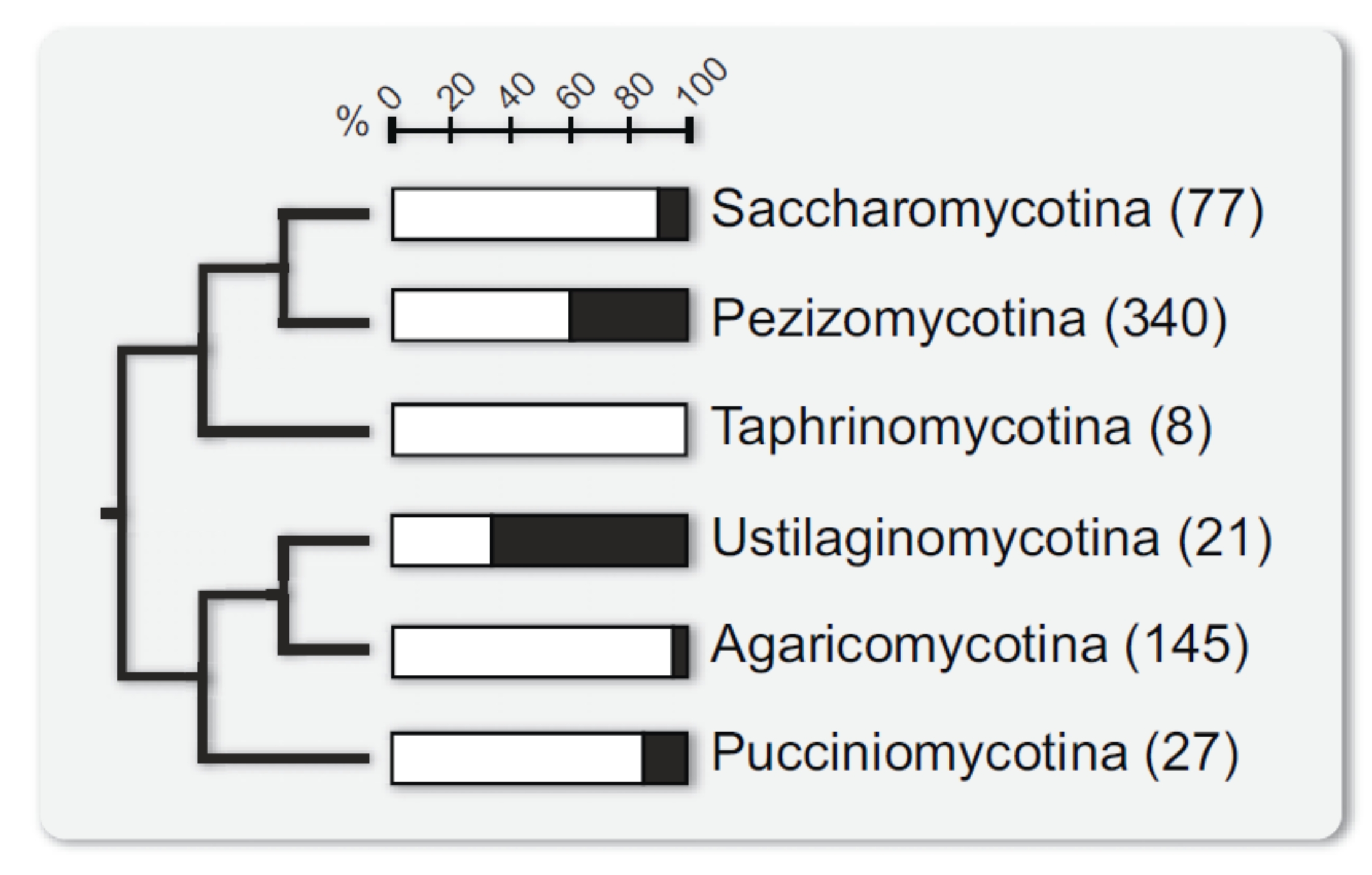The Yeast Genomics* lab @ NOVA
(*evolutionary, functional, comparative and more)




At the yeast genomics lab @NOVA we have a long-
Metabolic engineering of industrial yeast strains frequently involves optimization of the sugar transport step, a consequence of the fact that this step has been found to be rate limiting in processes of such importance as bioethanol production and wine and beer fermentations.
In this context, we have isolated and characterized transporters with unique biochemical properties, which may be useful for metabolic engineering.
Fsy1 (Gonçalves et al., 2000), for example, was the first specific fructose transporter to be identified in fungi. Gxs1 and Gxf1 from the yeast Candida intermedia (Leandro et al., 2006) were the first eukaryotic glucose/xylose transporters successfully expressed in Saccharomyces cerevisiae and have been since used for the improvement of bioethanol production from lignocellulosic materials.
Spurred by the high impact of sugar transport on yeast metabolism, we more recently became very interested in the dynamics of the evolution of sugar transporter genes in the Saccharomycotina. While exploring this topic, we found multiple events of horizontal gene transfer, intriguing gene family expansions, as well as strikingly frequent gene losses involving different types of sugar transporters. This line of research employs a combination of comparative genomics anchored on de novo sequencing of relevant genomes, with functional characterization of novel transporters (see highlighted study below).
Presently, our main focus of interest is the molecular basis of fructophily in Saccharomycotina yeasts. Fructophily is intimately linked with a very particular sugar transporter named Ffz1 (Pina et al., 2004), which has apparently evolved from a family of drug-
Function and Evolution of Sugar Transporters
Paula Gonçalves

We report in PLoS Genetics our findings concerning the evolutionary trajectory of a single fungal gene encoding a fructose transporter (FSY1) with unique substrate selectivity. A survey that included 241 fungal genomes led to the identification of 109 FSY1 homologues, exclusively found in two of the three major lineages of the phylum Ascomycota. Strikingly, at least 10 independent events of inter-
Turbulent evolutionary history of a fungal fructose transporter gene

(A) Species phylogeny and FSY1 ancestral state reconstruction. (B) Symporter activity of Fsy1 homologs of various origins expressed as sole hexose transporter in a S. cerevisiae hxt-




Stepwise Functional Evolution in a Fungal Sugar Transporter Family

We report in Molecular Biology and Evolution our findings concerning the relatively recent emergence of a unique family of fungal sugar facilitators, related to drug antiporters. The former transporters, named Ffz, were previously shown to be required for fructophilic metabolism in yeasts. We first exploited the wealth of fungal genomic data available to define a comprehensive but well-



Evidence for intra-
Functional analysis of Ffz homologs expressed as sole hexose transporters in S. cerevisiae hxt-
Glucose and fructose consumption profiles of Wickerhamiella species

Prevalence of Ffz in Dikarya
(presence in black, absence in white)

